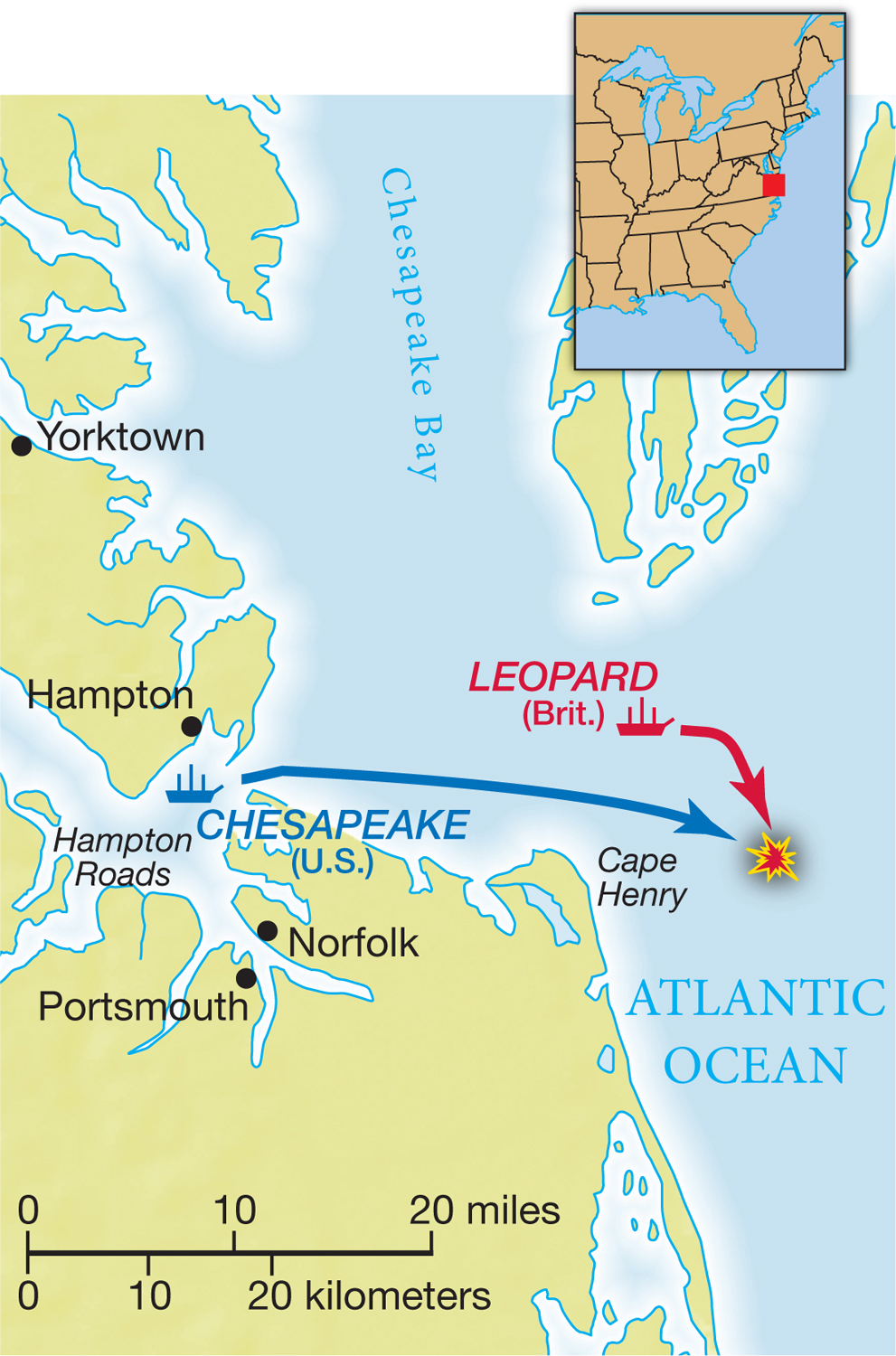The American Promise:
Printed Page 265
The American Promise Value
Edition: Printed Page 250
Impressment and Embargo
In 1803, France and Britain went to war, and both repeatedly warned the United States not to ship arms to the other. Britain acted on these threats in 1806, stopping U.S. ships to inspect cargoes for military aid to France and seizing suspected deserters from the British navy, along with many Americans. Ultimately, 2,500 U.S. sailors were “impressed” (taken by force) by the British, who needed them for their war with France. In retaliation against the impressments of American sailors, Jefferson convinced Congress to pass a nonimportation law banning particular British-

Jefferson found one event particularly provoking. In June 1807, the American ship Chesapeake, harboring some British deserters, was ordered to stop by the British frigate Leopard. When the Chesapeake refused, the Leopard opened fire, killing three Americans—
The Embargo Act of 1807 was a disaster. From 1790 to 1807, U.S. exports had increased fivefold, but the embargo brought commerce to a standstill. In New England, the heart of the shipping industry, unemployment rose. Grain plummeted in value, river traffic halted, tobacco rotted in the South, and cotton went unpicked. Protest petitions flooded Washington. The federal government suffered too, for import duties were a significant source of revenue. The Federalist Party, in danger of fading away after its weak showing in the election of 1804, began to revive.
Secretary of State James Madison was chosen by Republican caucuses—